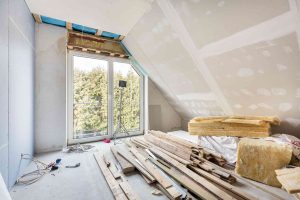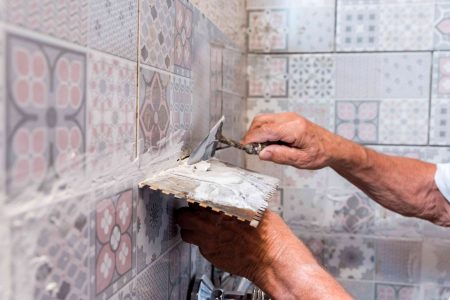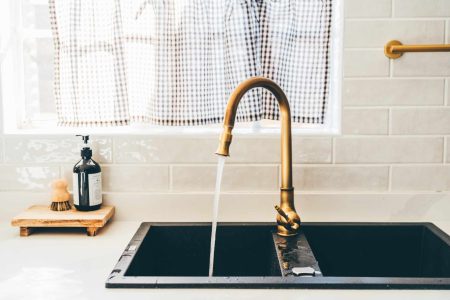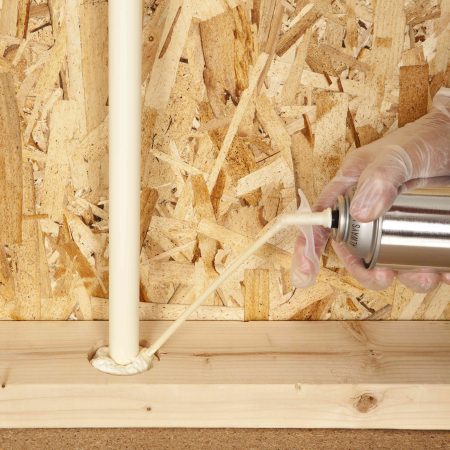- Avoid dangerous projects like electrical installation or roofing since it can lead to serious problems.
- DIY plumbing often lacks the proper inspection and testing it needs which can cause leaks.
- Flooring installation must be done by a pro so you can avoid squeaks or soft spots.
DIYers know that renovating a home yourself can save serious money. While most homeowners can confidently tackle projects like drywall repair, painting, cabinet installation, and more, there are some renovation tasks that you should save for the professionals.
Below, we’ve listed the 5 home renovations you should never do by yourself and spoke to some home renovation experts about why these projects are better left to the pros.
Meet the Expert
- Brandon Foote is a roofing expert and owner of Advanced Roofing & Construction, LLC.
- Paul Dashevsky is a renovation expert and co-founder of GreatBuildz.com.
Home Renos You Should Never Do Yourself
We love a good DIY home renovation project. However, not every home renovation task is suited for the DIY approach. Some tasks, such as electrical installation and roofing, are dangerous for inexperienced homeowners to tackle. While other projects, like flooring and plumbing, take experience to get right.
Want more home reno project tips and inspiration? Sign up for our free daily newsletter for the latest how-tos, reno guides, and more!
Roofing
On a simple structure with a basic roofline, a roof installation may not seem that difficult for an experienced DIYer to tackle. However, more complex rooflines make for a complicated job and, if you get it wrong, it can lead to serious problems down the road.
According to Brandon Foote, a roofing expert and owner of Advanced Roofing & Construction, LLC., most DIYers aren’t prepared to handle a roof repair or replacement.
“It’s not exactly the same as painting a wall, cutting some trim, or resurfacing your cabinets,” he notes, adding that the extremely dangerous nature of working on a roof means it should be left to professionals.
Warning
On top of the complicated nature of some roof installations, roofs are a dangerous place for inexperienced workers to learn on the job.
“Walking on roofs takes skill and knowledge to do it safely,” he explains. “Even the smallest detail like the composite of the bottom of your shoe makes a huge difference in the safety of being on a roof.”
Foote adds that homeowners and inexperienced DIYers may not recognize when shingles are losing too many granules, which makes them dangerous to walk on.
Plumbing
Plumbing looks easy until you try to do it yourself. An inexperienced plumber may not know when they’ve unsuccessfully plumbed the house, which can lead to water leaks that may not be discovered until they’ve caused major damage to your home. Paul Dashevsky, a renovation expert and co-founder at GreatBuildz.com, says that DIYing your plumbing creates a lot of risk.
“For example, if you install a new shower, but don’t plumb it correctly, you run the risk of the water supply pipes or the waste lines leaking, causing a flood in your home,” Dashevsky explains.
Experienced plumbers know how to properly install plumbing and fixtures, but also how to properly inspect and test them to ensure there are no leaks.
Electrical
It goes without saying that electrical work can be dangerous. While most DIYers can successfully change a light fixture, a switch, or a receptacle, in-depth electrical wiring, such as running new circuits, should be left to a professional electrician.
Dashevsky explains that home electrical systems are complicated and warns that homeowners may not understand when to use certain types of wire or the right wire gauge, which can have serious consequences.
“There are different colors and sizes of wires running through your home,” Dashevsky says. “An inexperienced homeowner could easily wire things incorrectly, risking a short circuit that could cause a fire in their home.”
Flooring
Though flooring is a home reno project that homeowners often prefer to tackle themselves, Dashevsky advises against this, advocating that hiring a professional can yield much better results and help homeowners avoid common beginner flooring mistakes.
Dashevsky explains how flooring materials like laminate seem simple to install because they snap together and don’t require glue or nails to secure to the floor. However, unlike a professional, a DIYer doesn’t know how to prepare the floor in advance of installation and will end up with squeaks and soft spots on their new floor.
Concrete
Many homeowners may see the bags of concrete at the hardware store and think they can successfully pour a concrete slab. You just mix it with water and pour it, right? Wrong.
Concrete slabs and concrete pours in general are tricky to get right. From weather considerations to mix consistency to volume calculations, there’s more to concrete than simply pouring it into a form and letting it cure.
“I think most people will do alright pouring a small section of sidewalk or a small square for their AC unit to sit on or something of that nature but it’s easier to mess up concrete than you realize,” Foote advises.
Read the full article here














